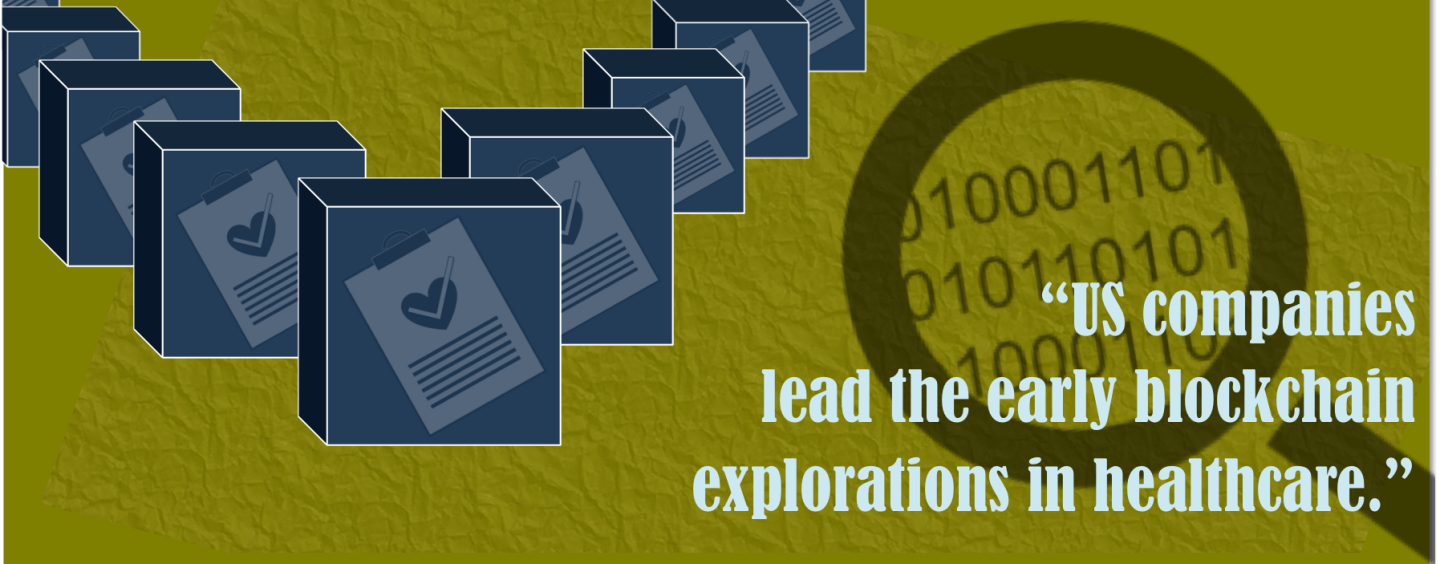As data becomes increasingly powerful, meaningful and valuable, concerns over its security are on the rise. Indeed, ‘big data’ has become the recent buzz-term to describe the ever-expanding, often-unstructured nature of important information, and has opened extensive discussions over how to approach ensuring data integrity is maintained.
Data Security
One of the primary appeals of blockchain is the security it provides, which prevents such data from being hacked. The data is fed into the system, where an encrypted code – known as a ‘hash’ value – is created for each initial transaction. Unique hashes are then combined (which allows large amounts of data to be processed), before being placed onto the block’s header along with a timestamp. At this point, the header becomes part of a cryptographic puzzle which must be solved by the blockchain’s network of users – through a trial and error process, from trillions of possibilities – before it is finally added to the blockchain. This layered system of security, therefore, is being sought after by industries in which client information is of a highly personal and/or valuable nature.
Blockchain application in healthcare
One of the most eagerly anticipated applications of blockchain is in healthcare, an industry which has long needed to undergo data optimization. In late January 2015, US health insurance provider Anthem learned of a massive cyberattack to its IT system, which ended up compromising a staggering 80 million patient and employee records. Because only one entity was being used to keep records of sensitive client health information, all data became readily available to the hackers from this single source.
The blockchain, however, uses cryptography to enable security in record-keeping, as well as sometimes using a system of ‘multi-signatures’, whereby gaining approval to the blockchain – and access to client data – requires the approval of several authorised users. Moreover, this can apply to all client data. Given the intensely private nature of such information, it requires the utmost protection, which blockchain can provide. Information relating to the client’s identity, medical history, specific diagnoses, treatments undergone and much more can thus be protected.
US companies lead the early blockchain explorations in healthcare
The US is currently leading the way in much of the early explorations, although the Dutch health giant Philips Healthcare is also investigating blockchain’s scope for use in the health industry. Little has been revealed about Philips’ project, other than it is in collaboration with Tierion, a start-up which is facilitating the collection and storage of big data on the blockchain. Tierion uses a system called chainpoint to ensure that all the data can be verified by blockchain receipts and timestamps. Meanwhile, California-based blockchain company Gem is also examining blockchain’s healthcare potential.
Gem CEO Micah Winkelspecht believes blockchain’s true benefit will be realized once independent parties within the health industry can be connected to the ledger to manage the lifecycle of a hospital bill. The blockchain, therefore, could be used to manage payments for numerous parties, including “insurance companies, hospital billing departments, lenders, and patients”, and Winkelspecht is now in discussion with relevant stakeholders within the health industry to explore this possibility. From there, Winkelspecht attests that blockchain can then be used “to manage the lifecycle of a patient’s medical record”, among other uses.
US blockchain company Factom, which is currently working with the Honduran government to provide greater security for the country’s land registry data, has also partnered with medical records and services solutions provider, HealthNautica, whose clients include hospitals and physicians, in order to use blockchain to enhance the security of medical records and achieve efficiency in claims processing. HealthNautica’s data, ranging from medical bills and client-physician communications to claims and disputes, will be cryptographically encoded by Factom, which produces a digital fingerprint of the data which is time-stamped and verified.
Patient confidentiality is maintained throughout because at no point is client data seen by third parties, Factom included. HealthNautica president Shailesh Bhobe calls Factom’s blockchain technology the “perfect fit” for improving the security of its data, while board member Andrew Yaschuk believes that if health insurance companies are also educated on the merits of blockchain, all parties can be involved in verifying claims data while still protecting client confidentiality.







8 Comments so far
Jump into a conversationBlockchain is one of the latest buzzwords in the tech world that has wide applications and can do wonders. With the advent of blockchain, life has become easier, but how? The eternal question, to which this article brings you the best answer. Blockchain use cases have surpassed their limit and no longer limited to bitcoins. Now, clients are looking for highly secure data information storage facilities to store their vital records.
Blockchain is an emerging IT technology that is poised to revolutionize the way businesses interact with customers. It’s a type of distributed ledger technology that keeps track of all transactions between two parties, creating an unchangeable public record. That’s why I am a huge fan of blockchain.
Blockchain is a type of distributed ledger technology that keeps track of all the transactions between two parties, making an unchangeable public record. That’s why I love blockchain so much.
Blockchain technology is a decentralized, distributed ledger that stores the record of ownership of digital assets. Any data stored on blockchain is unable to be modified, making the technology a legitimate disruptor for industries like payments, cybersecurity and healthcare. Discover more on what it is, how it’s used and its history.
Part 2 pls. I need to read this
I grateful that you have provided such helpful information. I haven’t been able to think of very many questions pertaining to this subject for some time. I’m going to stand by your side!
Interesting information and more pictures can be found here https://depositphotos.com/stock-photos/islamic-background.html It will save your nerves and time
I’m constantly searching on the internet for posts that will help me. Too much is clearly to learn about this. I believe you created good quality items in Functions also. Keep working, congrats!